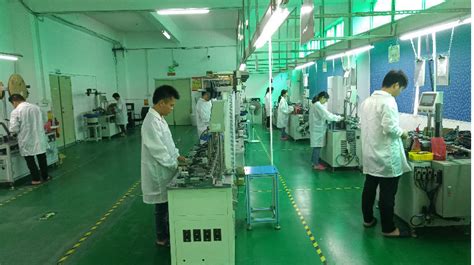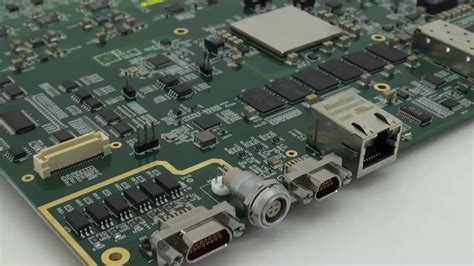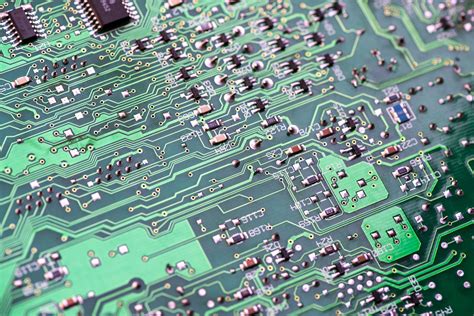Certified PCB Connector Suppliers Ensuring Secure Integration
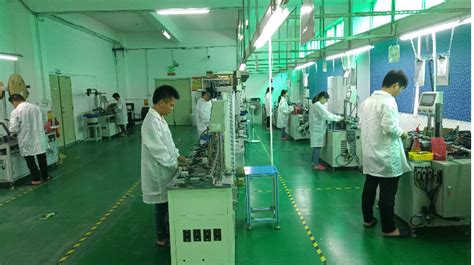
Key Takeaways
When selecting PCB connector suppliers, understanding the foundational elements of secure integration is critical. You’ll want to prioritize partners that adhere to IEC/TID compliance, as these standards ensure components meet rigorous safety and performance benchmarks. For PCB manufacturing companies, balancing PCB manufacturing cost with quality requires evaluating suppliers’ certifications—such as ISO 9001 or IPC-A-610—to verify their commitment to reliability.
A key consideration is how cybersecurity protocols align with your PCB manufacturing business goals. Trusted suppliers integrate encryption-ready designs and tamper-resistant features, reducing vulnerabilities in sensitive applications. Below is a breakdown of critical factors to assess:
| Factor | Impact on PCB Manufacturing |
|---|---|
| Cybersecurity Standards | Ensures data integrity across connected systems |
| Compliance Certifications | Validates adherence to IEC/TID requirements |
| Cost-Efficiency | Balances PCB manufacturing cost with component longevity |
| Integration Testing | Confirms secure interoperability with existing systems |
By focusing on these elements, you can streamline supplier selection while maintaining secure, high-performance outcomes. Always verify that PCB manufacturing partners provide transparent documentation and scalability options to future-proof your projects.

Secure PCB Integration Standards
When integrating components into your PCB manufacturing process, adhering to secure integration standards ensures both performance and protection against vulnerabilities. Certified PCB manufacturing companies prioritize compliance with frameworks like IEC 62443 and TID certifications, which validate resistance to tampering and cyber-physical threats. These standards require rigorous testing of connectors for signal integrity, EMI shielding, and firmware security—critical factors in applications where data breaches or system failures carry high risks.
Selecting suppliers who align with these protocols directly impacts your PCB manufacturing cost by reducing rework from compromised components. For instance, connectors with embedded authentication mechanisms prevent counterfeit parts from entering your supply chain, a common issue in high-volume PCB manufacturing business operations. Additionally, cybersecurity-focused designs—such as encrypted data channels in board-to-board connectors—add layers of protection without sacrificing speed or reliability.
To maintain compliance, verify that partners provide documentation like TID-certified test reports and IEC 62443-4-2 conformity statements. Trusted suppliers often integrate these requirements into their quality management systems, ensuring consistency across production batches. By prioritizing these standards, you mitigate risks while fostering long-term partnerships with providers committed to secure, resilient connectivity solutions.
IEC/TID Compliance in Connectors
When evaluating PCB manufacturing companies for secure integration, verifying IEC/TID compliance in connectors is non-negotiable. These standards ensure that components withstand electromagnetic interference (EMI) and transient-induced damage (TID), which are critical for maintaining reliable connectivity in high-risk environments. For businesses managing PCB manufacturing costs, opting for non-compliant parts might seem cost-effective initially, but the long-term risks—such as system failures or cybersecurity breaches—far outweigh short-term savings.
Trusted PCB manufacturing businesses prioritize IEC/TID-certified connectors because they align with global cybersecurity protocols. This is particularly critical for applications in critical infrastructure or industrial automation, where even minor disruptions can cascade into operational downtime. When sourcing components, ensure suppliers provide documentation validating compliance, such as test reports or certification IDs.
While IEC/TID adherence may influence PCB manufacturing cost structures, it directly enhances product longevity and user trust. By prioritizing certified connectors, you not only mitigate integration risks but also future-proof your designs against evolving regulatory demands. Always cross-reference supplier claims with third-party audits to avoid compromises in quality or security.
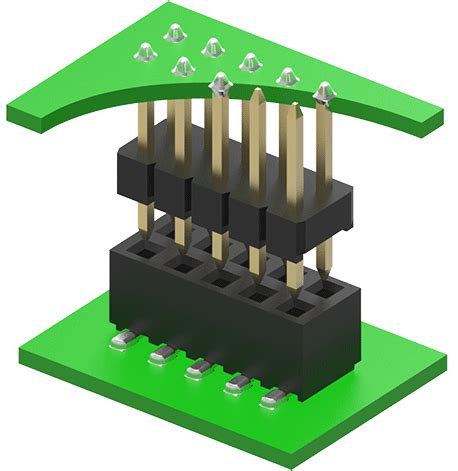
PCB Supplier Certification Guide
When selecting PCB manufacturing companies for secure integration, verifying certifications is critical to ensure compliance with industry standards. Start by confirming that suppliers hold ISO 9001 or IECQ QC 080000 certifications, which validate quality management and hazardous substance control. For connectors, prioritize those adhering to IEC 60664 (insulation coordination) and TID certifications to guarantee resilience against environmental stressors.
"Always request audit reports or third-party validation documents to confirm a supplier’s adherence to cybersecurity protocols, especially if your project involves sensitive data transmission."
Certified PCB manufacturing partners not only reduce pcb manufacturing cost overruns caused by defects but also align with regulatory frameworks like GDPR or NIST for data protection. Look for suppliers with UL 94 V-0 flammability ratings or IPC-A-610 acceptance criteria, as these directly impact component reliability. Additionally, assess their pcb manufacturing business continuity plans—such as disaster recovery protocols—to avoid disruptions.
When evaluating pcb manufacturing companies, cross-check certifications with real-world performance metrics, like mean time between failures (MTBF) or defect rates. This dual-layer verification ensures your supply chain minimizes supply chain risks while maintaining scalability for future projects.
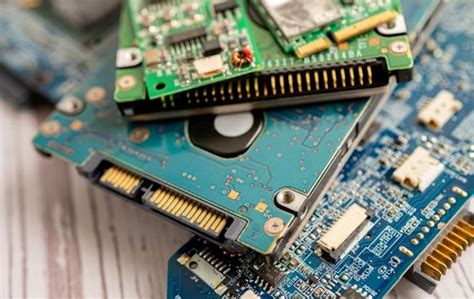
Cybersecurity for PCB Connectivity
When selecting PCB manufacturing companies for connectivity solutions, you must prioritize cybersecurity protocols that protect sensitive data and system integrity. Modern PCB manufacturing processes increasingly rely on digital design tools and networked production systems, creating vulnerabilities if encryption standards or access controls are inadequate. Trusted suppliers implement IEC 62443 or NIST SP 800-53 frameworks to safeguard designs during file transfers, ensuring third-party vendors cannot compromise your intellectual property.
To mitigate risks, verify that PCB manufacturing businesses conduct regular penetration testing and employ secure authentication methods for firmware updates in connectors. While PCB manufacturing cost may rise with advanced cybersecurity measures, the expense is justified when preventing breaches that could disrupt supply chains or expose proprietary schematics. For example, encrypted communication between connectors and mainboards prevents unauthorized access, a critical feature in industrial IoT or medical devices.
Always request documentation proving compliance with ISO 27001 or TÜV certifications, as these validate a supplier’s commitment to cybersecurity. By aligning your selection criteria with both technical performance and digital safety, you ensure PCB manufacturing partners contribute to end-to-end security—not just physical reliability.
Reliable PCB Supplier Selection
Selecting PCB manufacturing partners requires balancing technical expertise, compliance, and scalability. When evaluating PCB manufacturing companies, prioritize those with certifications like ISO 9001 or IPC-A-610, which validate adherence to quality management and assembly standards. These certifications act as safeguards against supply chain vulnerabilities, ensuring components meet IEC/TID compliance for cybersecurity resilience.
Cost efficiency remains critical, but avoid letting PCB manufacturing cost dominate decisions. Lower upfront expenses might mask risks like subpar materials or outdated testing protocols. Instead, assess suppliers offering transparent breakdowns of design-for-manufacturability (DFM) support and lifecycle management—key indicators of long-term reliability. For businesses scaling operations, verify that PCB manufacturing business partners maintain robust cybersecurity frameworks, including encrypted data transfers and tamper-evident packaging.
Transitioning from certification checks to operational compatibility ensures seamless integration. For example, suppliers specializing in high-frequency or ruggedized connectors should align with your product’s environmental demands. By prioritizing traceability and audit-ready documentation, you mitigate risks while fostering partnerships that adapt to evolving industry standards—a cornerstone of secure, future-proof connectivity solutions.
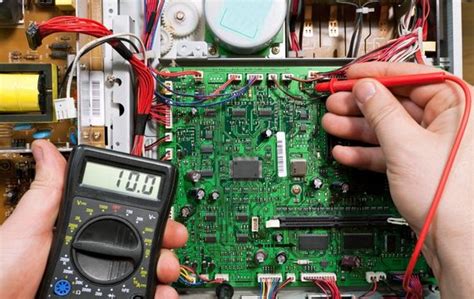
Secure Component Integration Guide
When integrating components into your PCB manufacturing process, prioritizing security begins with selecting suppliers whose practices align with end-to-end cybersecurity protocols. Certified PCB manufacturing companies adhere to IEC/TID standards, ensuring connectors and other components resist tampering and data breaches. To maintain secure integration, verify that suppliers implement zero-trust architectures—validating each component’s authenticity before assembly.
Balancing PCB manufacturing cost with security requires evaluating suppliers’ testing methodologies. Reputable providers conduct automated vulnerability scans on connectors, minimizing risks without inflating budgets. For businesses scaling their PCB manufacturing business, opt for partners offering traceable component histories and encrypted firmware updates. This reduces exposure to counterfeit parts, a common vector for system compromises.
Finally, ensure your chosen supplier integrates hardware-based security features (like embedded cryptographic modules) directly into connectors. This layered approach not only meets compliance but fortifies connectivity against evolving threats. By aligning with certified experts, you safeguard both performance and trust in critical applications.
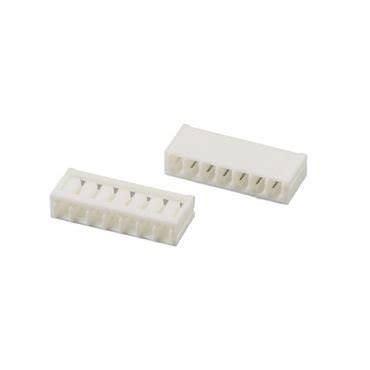
Certified PCB Suppliers for Safety
When selecting PCB manufacturing companies for safety-critical applications, verifying certifications should be your top priority. Certified suppliers adhere to IEC/TID cybersecurity standards, ensuring connectors and components meet rigorous requirements for secure integration. These standards minimize risks of data breaches or system failures by validating that PCB manufacturing processes incorporate tamper-resistant designs and encryption protocols.
Reputable suppliers often provide transparent documentation of their compliance frameworks, helping you assess how material quality and assembly methods align with safety benchmarks. This is particularly vital when managing PCB manufacturing cost without compromising on security—certified partners optimize production workflows to balance affordability and reliability.
For businesses in high-stakes industries (e.g., aerospace or medical devices), partnering with certified PCB manufacturing business entities ensures end-to-end traceability. Look for suppliers with ISO 9001 or UL certifications, which confirm adherence to global safety and quality protocols. By prioritizing certified providers, you mitigate risks in both component performance and long-term system integrity, safeguarding your projects from vulnerabilities rooted in unvetted supply chains.
Transitioning to trusted suppliers also future-proofs your operations, as evolving cybersecurity regulations demand continuous compliance—a commitment embedded in certified PCB manufacturing practices.
Choosing Trusted PCB Suppliers
When selecting PCB manufacturing companies for secure integration, verifying certifications is critical. Trusted suppliers adhere to industry-recognized standards like ISO 9001, UL, and IPC-A-610, ensuring components meet cybersecurity and reliability benchmarks. Prioritize partners who align with IEC/TID compliance, as this guarantees connectors withstand electromagnetic interference and physical tampering.
Beyond certifications, evaluate their PCB manufacturing cost structure. Transparent pricing models help avoid hidden fees while maintaining quality. Look for suppliers with robust traceability systems, enabling you to track materials from sourcing to assembly—a key factor in mitigating risks in your PCB manufacturing business.
Assess their commitment to secure integration practices, such as encrypted data transfers during design collaboration and rigorous testing protocols. Reliable partners often provide documentation like Material Declarations (RoHS/REACH) and cybersecurity audit reports, which validate component integrity.
Finally, consider scalability. A supplier’s ability to adapt to evolving PCB manufacturing demands—whether prototyping or high-volume production—ensures long-term partnership viability. By balancing compliance, transparency, and adaptability, you safeguard both performance and security in your electronic systems.
Conclusion
When selecting partners for PCB manufacturing, prioritizing certified suppliers ensures your designs meet critical cybersecurity and reliability benchmarks. Trusted PCB manufacturing companies integrate IEC/TID-compliant connectors to safeguard against vulnerabilities, aligning with industry standards for secure component integration. While PCB manufacturing cost may influence decisions, compromising on certification risks long-term operational stability—especially in applications demanding zero-failure tolerance. By rigorously evaluating suppliers’ adherence to cybersecurity protocols and component traceability, you mitigate risks tied to counterfeit parts or weak encryption. For PCB manufacturing businesses, this diligence translates to reduced downtime, enhanced product lifespan, and compliance with global safety regulations.
Ultimately, the synergy between certified suppliers and secure PCB connectivity hinges on transparent partnerships. Verify suppliers’ documentation, audit their quality control processes, and prioritize those offering end-to-end compliance reporting. This approach not only fortifies your designs but also strengthens your supply chain against evolving threats, ensuring seamless integration across all stages of PCB manufacturing.
FAQs
How do certifications impact PCB manufacturing quality?
Certifications ensure suppliers adhere to industry benchmarks like IEC/TID, guaranteeing components meet rigorous safety and performance criteria. This is critical for PCB manufacturing companies aiming to deliver secure, reliable products.
What factors influence PCB manufacturing cost when sourcing connectors?
Costs depend on material quality, compliance certifications, and cybersecurity integration. Trusted suppliers balance affordability with standards adherence, minimizing risks like signal interference or data breaches in your PCB manufacturing business.
Why prioritize cybersecurity in connector selection?
Modern systems require components that resist tampering and electromagnetic interference. Certified suppliers embed protections aligned with global standards, ensuring seamless integration into secure PCB manufacturing workflows.
How do you verify a supplier’s reliability for PCB manufacturing projects?
Review their certifications (e.g., ISO, UL), test reports, and client testimonials. Reputable PCB manufacturing companies provide transparent documentation, ensuring connectors align with your design and security requirements.
Ready to Partner with Certified Experts?
For tailored solutions that optimize PCB manufacturing cost and compliance, please click here to connect with industry-leading specialists. Ensure your next project meets the highest integration standards.

